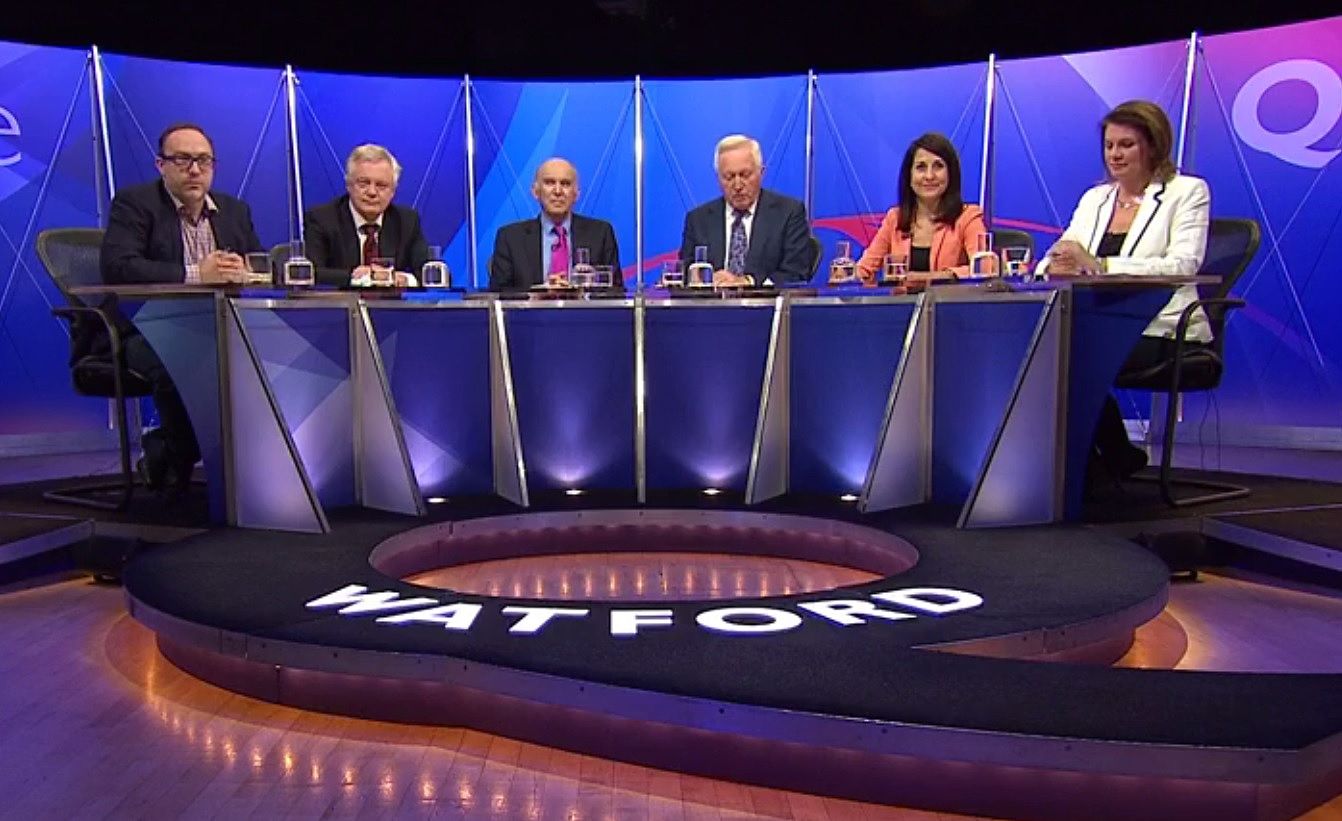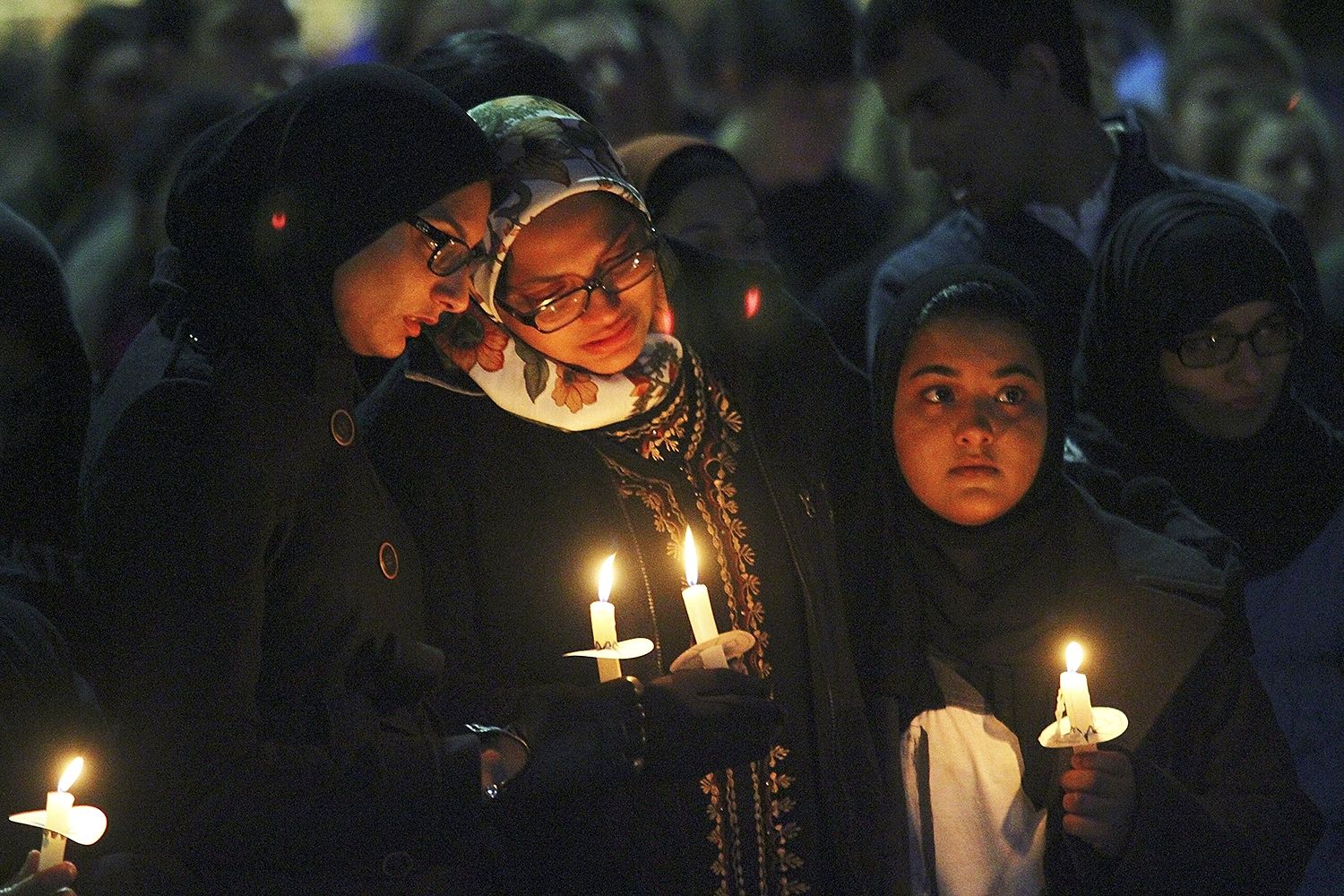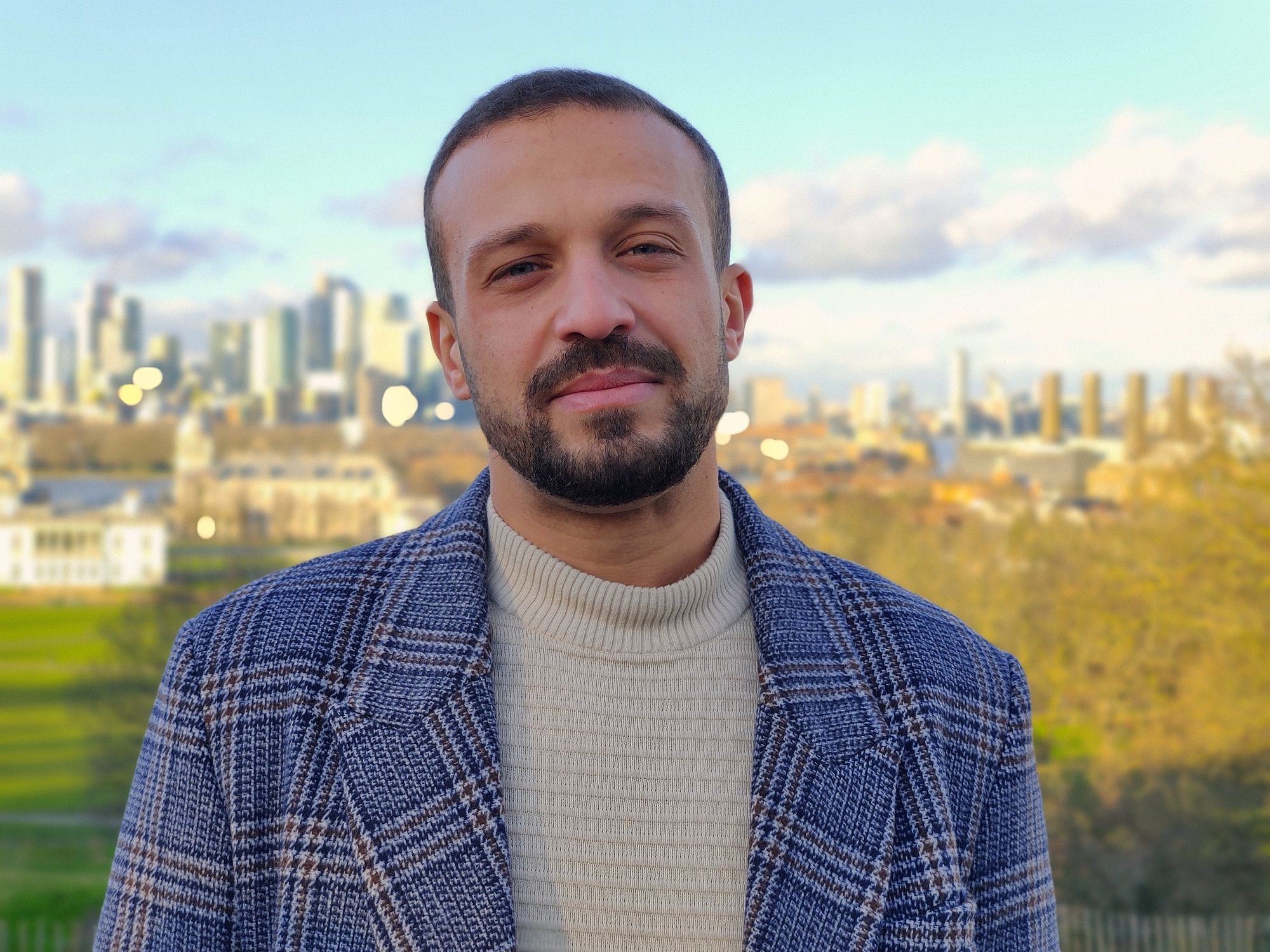When do We Get to Speak?
Mohamed Hassan on the need for more Muslim voices in the media.
I feel like I should start with an apology.
An apology on behalf of Muslims everywhere, for terrorism. I’m afraid that if I don’t begin by condemning any and all acts of violence, real and hypothetical, then I won’t be taken seriously. Worse, I’m afraid that if I don’t wax lyrical about my profound love of peace, freedom of speech and all other ‘Western values’, then I will be seen as siding with the bad guys.
As a Muslim, I am only allowed to exist in binary. Either I am a moderate, flag-waving, liberal immigrant (who, of course, hates beards, burqas and does not take the Quran literally) or I am a fundamentalist, a radical and a terror sympathiser. If I don’t unequivocally condemn the most recent headline-grabbing act of violence - using an up-to-date list of key phrases and buzzwords - I will be accused of supporting it. I am allowed to exist in the public sphere as either a talking head speaking in favour of anti-terror policies aimed solely at my community, or as an example of what the bogeyman looks like. If I try and speak outside of these boundaries, let alone question the foundations these narratives are rooted in, I will be dismissed.
And now, as we prepare to send troops to a Muslim country, the largest representative Muslim body in our nation is being consistently ignored by the government. The secretary of the Federation of Islamic Associations, Jamal Green, told Radio New Zealand that their repeated requests for communication have been met with silence. The large Iraqi community within New Zealand thus goes without a voice as security laws that will disproportionately affect New Zealand Muslims are aggressively increased.
I am not offered a voice to defend myself, and those who might speak on my behalf are intentionally disregarded.
I am not offered a voice to defend myself, and those who might speak on my behalf are intentionally disregarded. It seems there are already so many non-Muslim, non-brown (and, thus, acceptable) people speaking on my behalf, with voices more credible than mine. It is much easier, more sexy, to invite 'experts' on Islamism and radicalisation who can tell us about creeping Sharia, no-go zones for non-Muslims, and the serpents hiding in our civilised societies. Let’s also invite reality television stars, actors and white supremacist organisations on to advise us on how to deal with terrorism on our soil.
It almost seems ludicrous to imagine agencies like Fox, CNN and the BBC inviting Muslims of different ethnicities and political leanings to appear on their panels and talk about security laws, Islamophobia or the efficacy of the War on Terror. After all, what could we learn from Muslim community leaders, political academics and critical voices, some of whom have spent their entire careers researching and writing about Islam in the West? It is much easier pretending these people don’t exist than dealing with the uncomfortable questions they might incite.
When we don’t allow Muslims a platform and a voice within our communities, it then becomes a little bit tricky finding talking heads when the headlines call. The reality is it’s too hard to decontextualise political conflicts and structures of discrimination within the confines of a 30 second voice-over on an hourly bulletin, and who wants to talk about orientalism at 8am on a Sunday morning?
The reluctance on behalf of media to cover the gunning down of Deah Shaddy Barakat, his wife, Yusor Mohammad Abu-Salha, and her sister, Razan Mohammad Abu-Salha was a chilling reminder of the prevalence of Islamophobia. Only after the local Muslim community was forced to self-report the deaths through social media and the story gained traction did major media outlets begin to budge, specifically once their integrity was called into question.
What this said to Muslims like me was that our deaths were not important enough to be noticed. Worse still, that media outlets could have willingly refused to report young Muslims murdered by a white American man, lest they need to ask themselves uncomfortable questions about the consequences of irresponsible reporting. That they fear the monster they had spent years sculpting would one day come home to roost.
In that moment, I finally understood the anger that set Ferguson alight. The unshakable feeling that your life was not worthy of mourning. That despite all the promises your country will make to you about how much you belong, that underneath it all is a different reality.
There is no room for Muslims as victims on the blank white page of public consciousness. That muddy reality would draw us away from thinking white Westerners are the only victims of terrorism. That acts of terror can only be carried out by Muslims. That all Muslims are willing participants in the Clash of Civilisations, whether with gun in hand or as silent sympathisers and collaborators, allowing radicalism to fester in our homes. To escape these stubborn labels, we would have to dismantle the narrative that propels the War on Terror, and no-one is willing to do that.
We like our simple narrative because it’s comfortable. It lets us ignore the political and economic environments that create extremism, and the role the West plays in creating those environments. In this narrative every act of terrorism happens in a vacuum, making us shocked and baffled at how some people and their ideologies can be inherently evil. It lets us ignore the structures of violence that follow Muslims everywhere, making it hard for us to get through airport security, outlawing our religious attire, launching terror raids, and underpinning the recent wave of anti-Islamic rallies across Europe. It lets us ignore that Richard Dawkins, Geert Wilders, Marine Le Pen, Jacqui Lambie and Richard Prosser existed before ISIS did.
In the aftermath of the Paris attacks, it allows us to pretend the violence had nothing to do with the ethnicity of the gunmen; nothing to do with a brutal occupation that killed over a million Algerians. God forbid this narrative is questioned by a Muslim, lest we be accused of condoning the killings at Charlie Hebdo.
I am Charlie Hebdo, or I am nothing.
As the world discovers its newfound love for freedom of speech following those killings, I am Charlie Hebdo, or I am nothing. I am not allowed to be the dozens of others arrested across France for "justifying terrorism". I am not allowed to be Mohamed El Makouli, the 47-year-old French Muslim stabbed to death by his neighbour. I am not allowed to be the 37 Yemenis killed in a car bomb on the very same day as the Paris attacks, or the 2000 Nigerians killed by Boko Haram militants in the same week. I cannot be the 17 journalists killed during the US-sanctioned assault on the Gaza Strip by Israeli forces last year or the thousands of Rohingya literally driven into the sea by the Burmese government.
The bar was set high from the start. Not only was it necessary for every Muslim to speak up and out against the attacks (then be accused of not doing so), but we are also expected to continuously prove our loyalty to the state, to Western values and to freedom of speech.
It is a bitter pill to swallow - to be asked to celebrate a magazine that never represented us: a magazine that on its best days ridiculed our beliefs with racist and unrestrained caricatures, adding to the heightening xenophobia and Islamophobia across European societies and, on its worst, backed military invasions and the French face covering laws that forced Muslim women to strip away their beliefs in the public eye.
Watching the emotional press conference on the hotly-anticipated front cover marking Charlie Hebdo’s triumphant return to print, I felt an initial pang of remorse. Had I been wrong to be angry at calls to support and publish their work?
Cartoonist Renald Luzier tearfully explained his team’s efforts to find a cover that would be a fitting response to the loss of five of their own. He offered a tongue-in-cheek apology for “drawing Muhammad again”. I admit, I was taken aback at how restrained the cover seemed; far away from the bloated caricatures we’d seen in the past.
It didn’t take long for me to realise what the casual entitlement in his tone - like the tone of Charlie Hebdo’s cartoons - really implied. Luzier's apparent epiphany that the character he had been drawing was not a terrorist but a "character crying" spoke volumes about the sense of ownership the magazine felt it had over the most important figure in the Muslim world.
The reason we had come to expect a caricature of the Prophet Muhammad to appear on this new cover is because, in the mind of many, he is now a character that belongs to the cartoonists at Charlie Hebdo. His image, speech and personality are a tool they are at liberty to use as they address, or speak on behalf of, the Muslim community.
The liberty taken in appropriating culture, history and identity for even the most trivial of pursuits is nothing new. Only two months ago I was being told to ‘get a life’ by Ridley Scott because, as an Egyptian, I was shocked at my ancestors being played by a cast of white actors in brownface.
It is a message we are used to. Unlike the West, our histories are malleable; our narratives unreliable. We cannot be trusted to tell our own stories. Franz Fanon's account of colonial powers like France devaluing, warping and undermining the history of their colonies rings true today. Not only is the Muslim world not allowed to tell its own story; we must accept that our narrative will be skewed and misappropriated at any time and for any reason, whether for political means or just comic relief.
In many ways, the wave of protests around the world following the release of the Charlie Hebdo cover, as with those following the release of the anti-muslim film “Innocence of Muslims”, should be seen as an attempt to reclaim our narrative. It’s difficult to explain the significance of the Prophet Muhammad in the lives of the 1.5 billion Muslims around the world. For many, he is the filter through which we see ourselves. His stories, actions and narrations help us navigate all aspects of our lives. It is not hard to see how the sustained dehumanisation of the Prophet has and will be internalised in a deeply personal way.
As a Muslim male, when I see drawings of him stripped and mocked, I am seeing myself. I am seeing the inmates at Abu Ghraib, of Guantanamo Bay. When I see him forced to hold a sign saying #JeSuisCharlie, I am being told, quite explicitly, that I am Charlie, whether I like it or not. It is either that, or I must remain silent.


